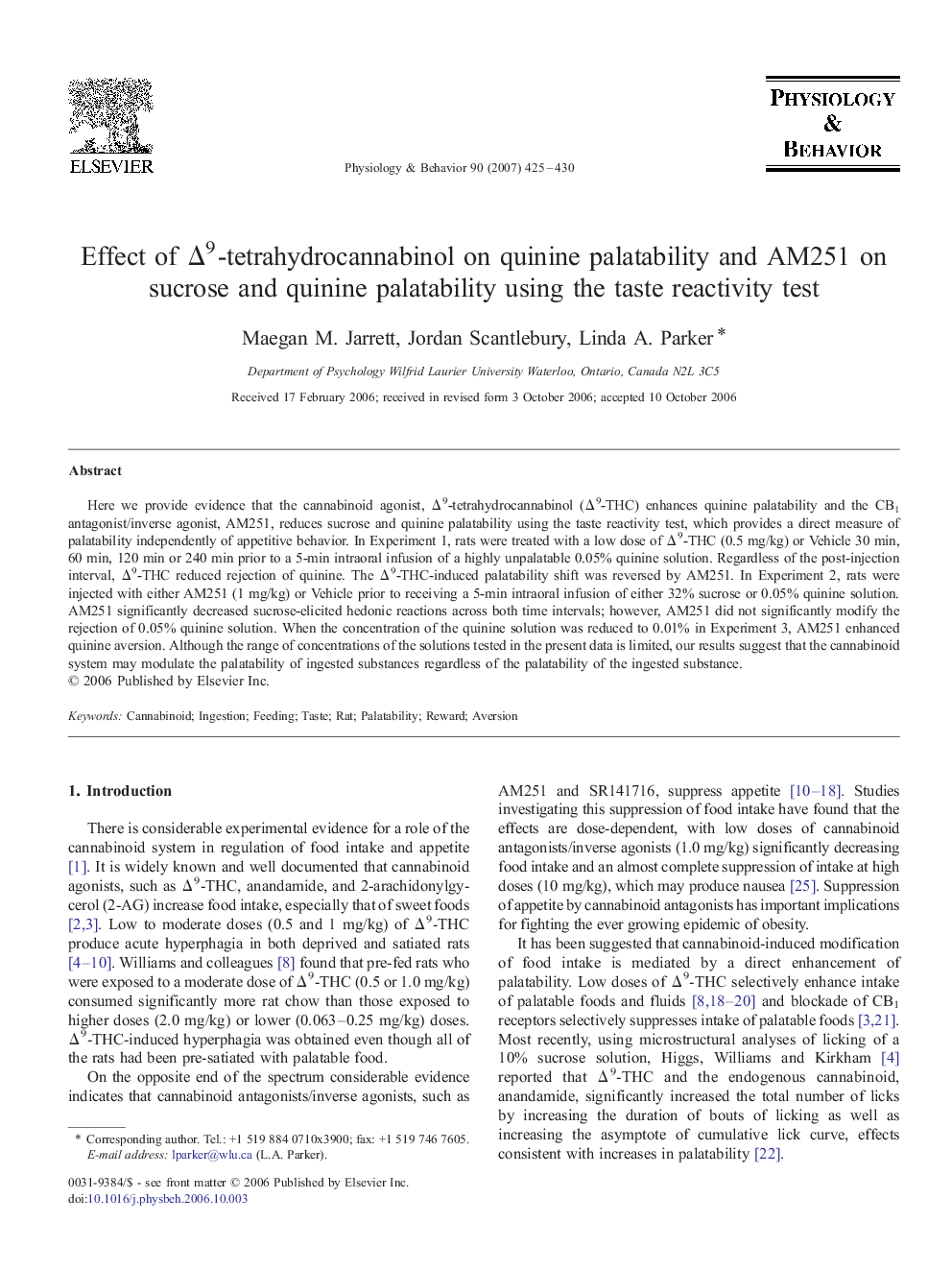| کد مقاله | کد نشریه | سال انتشار | مقاله انگلیسی | نسخه تمام متن |
|---|---|---|---|---|
| 2846206 | 1571218 | 2007 | 6 صفحه PDF | دانلود رایگان |

Here we provide evidence that the cannabinoid agonist, Δ9-tetrahydrocannabinol (Δ9-THC) enhances quinine palatability and the CB1 antagonist/inverse agonist, AM251, reduces sucrose and quinine palatability using the taste reactivity test, which provides a direct measure of palatability independently of appetitive behavior. In Experiment 1, rats were treated with a low dose of Δ9-THC (0.5 mg/kg) or Vehicle 30 min, 60 min, 120 min or 240 min prior to a 5-min intraoral infusion of a highly unpalatable 0.05% quinine solution. Regardless of the post-injection interval, Δ9-THC reduced rejection of quinine. The Δ9-THC-induced palatability shift was reversed by AM251. In Experiment 2, rats were injected with either AM251 (1 mg/kg) or Vehicle prior to receiving a 5-min intraoral infusion of either 32% sucrose or 0.05% quinine solution. AM251 significantly decreased sucrose-elicited hedonic reactions across both time intervals; however, AM251 did not significantly modify the rejection of 0.05% quinine solution. When the concentration of the quinine solution was reduced to 0.01% in Experiment 3, AM251 enhanced quinine aversion. Although the range of concentrations of the solutions tested in the present data is limited, our results suggest that the cannabinoid system may modulate the palatability of ingested substances regardless of the palatability of the ingested substance.
Journal: Physiology & Behavior - Volume 90, Issues 2–3, 28 February 2007, Pages 425–430